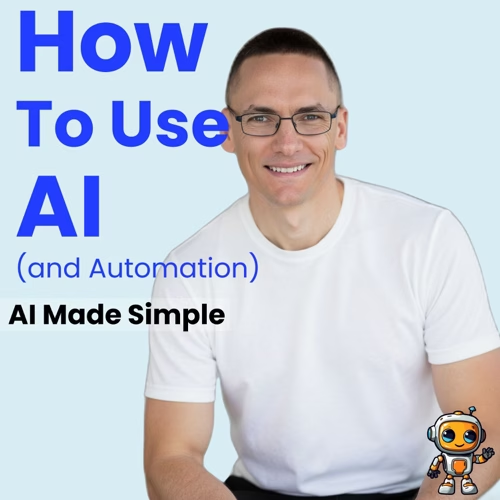
Bra podd
Sveriges mest populära poddar

A podcast that explores the good, the bad, and the creepy of artificial intelligence. Weekly longform conversations with key players in the space, ranging from CEOs to artists to philosophers. Exploring the role of AI in film, health care, business, law, therapy, politics, and everything from religion to war. Featured by Inc. Magazine as one of ”4 Ways to Get AI Savvy in 2024,” as ”Host Jeff Wilser [gives] you a more holistic understanding of AI–such as the moral implications of using it–and his conversations might even spark novel ideas for how you can best use AI in your business.”
Avsnitt
Podden AI-Curious with Jeff Wilser är skapad av Jeff Wilser. Poddens innehåll och bilderna på den här webbplatsen hämtas med hjälp av poddens RSS-flöde.
00:00
-00:00




